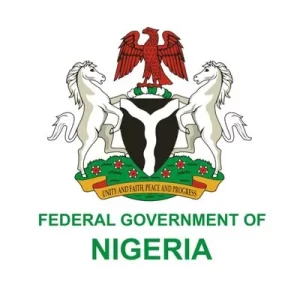Table of Contents
As part of its ongoing efforts to combat the issue of waste in the environment, the European Union (EU) is collaborating with the Federal Government of Nigeria (FG).


This year, the EU is partnering with the Federal Ministry of Environment and other stakeholders globally to observe the International Zero Waste Day in Nigeria.

Join our Telegram Channel for Updates
This marks the first time the Day is being commemorated following its designation by the United Nations General Assembly last December.
Addressing an event in Abuja to mark this year’s International Zero Waste Day under the theme “Beat Waste,” Zissimos Vergos, Deputy Ambassador of the European Union Delegation to Nigeria and ECOWAS, stated, “This year’s theme, ‘Beat Waste,’ underscores the paramount importance of preventing waste generation in the first place.
The International Day of Zero Waste highlights the critical need to enhance waste management worldwide and promote sustainable consumption and production patterns.
“Annually, humanity produces between 2.1 billion and 2.3 billion tonnes of municipal solid waste. However, global waste management services are insufficient to handle this volume, with 2.7 billion people lacking access to solid waste collection and only around 60 per cent of municipal solid waste being managed in controlled facilities.”
Zissimos emphasized that waste pollution not only poses a significant threat to human well-being and economic prosperity but also contributes to the triple planetary crisis of climate change, nature and biodiversity loss, and pollution.
He warned that without immediate action, annual municipal solid waste generation is projected to reach 3.8 billion tonnes by 2050.
“In recognition of this major challenge, the European Union launched the Global Alliance on Circular Economy and Resource Efficiency (GACERE), led by the EU and UNIDO, with support from the United Nations Environment Programme, and Nigeria has also joined. This initiative fosters international collaboration to address plastic pollution, including in marine environments.
“In alignment with this objective, we are partnering with the Federal Ministry of Environment, which currently co-chairs the Nigeria Circular Economy Working Group alongside UNIDO.
This group brings together all key stakeholders to enhance the implementation of circular economy policies and practices at national and sub-national levels, intending to achieve inclusive and sustainable economic growth in Nigeria.
“Our other contributions and achievements include the development of the National Policy on Waste Battery Management in 2021, support to NESREA on the formulation of the National Environmental (Plastic Waste Control) Regulations of 2023, and last but not least, the unveiling of the National Circular Economy Roadmap today,” he concluded.









